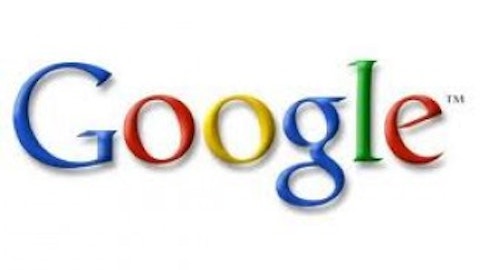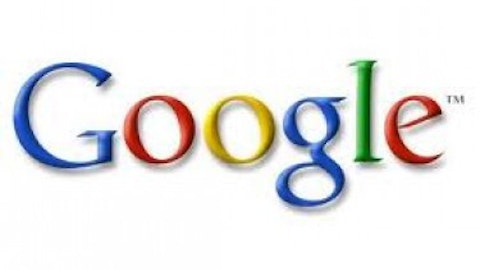Google Inc (NASDAQ:GOOG) recently announced that it had entered into an acquisition agreement with privately held online mapping firm Waze. Despite the fact that many casual tech users have never heard of Waze, observers have placed the value of the deal at between $1 billion and $1.3 billion. The company’s outsize valuation is due in part to its popularity outside of the United States and Canada, as well as its strategic importance to the ever-growing online mapping ecosystem.
Based in Israel, Waze’s signature product is an app that helps drivers find usable routes through traffic in real time. The app is geared towards mobile users, and it offers a tremendous commercial opportunity for local business owners who use its interface to advertise the geographical locations of their businesses. Although the “bidding war” was largely civil and behind-the-scenes, Waze was courted by tech giants like Apple, Facebook Inc (NASDAQ:FB) and Yahoo! Inc. (NASDAQ:YHOO) in the run-up to Google Inc (NASDAQ:GOOG)’s successful bid.
Google, Facebook and Yahoo! at a Glance
It might make sense to compare Google Inc (NASDAQ:GOOG)’s financial strength against that of the competitors that stood to benefit most from Waze’s products. Given their heavy reliance on ad revenue, Facebook Inc (NASDAQ:FB) and Yahoo! Inc. (NASDAQ:YHOO) have made no secret of their desire to improve the commercial viability of their mapping applications. With Google Maps still controlling the intersection of mapping and advertising, these companies will certainly have to play catch-up in the coming quarters.
Unsurprisingly, Google Inc (NASDAQ:GOOG)’s market capitalization reflects its dominant position. The company’s $289 billion valuation dwarfs Yahoo!’s $28 billion and makes Facebook’s $57 billion market cap look puny as well. In 2012, the company earned $11.2 billion on $53.5 billion in gross revenues. This compares to Yahoo!’s $1.3 billion EBITDA on revenues of $4.9 billion and Facebook’s $112 million profit on $5.5 billion in revenues. Relative to some of their tech-industry peers, these companies are actually quite cheap: Facebook Inc (NASDAQ:FB)’s price-to-book ratio of 4.85 is the group’s highest. Meanwhile, Yahoo! has a ratio of 1.95, and Google comes in with a figure of about 3.8. Yahoo! Inc. (NASDAQ:YHOO) does look undervalued on a sum of parts analysis when you include the worth of its stake in Alibaba.
All three of these companies are in solid financial shape. Facebook has already amassed a cash hoard of $9.5 billion to offset a debt load of $2.3 billion, and Yahoo! has virtually no debt to balance out its $3 billion cash reserve. However, its negative operating cash flow could prove troublesome. For its part, Google Inc (NASDAQ:GOOG) has $7.4 billion in debt and $50.1 billion in cash. Its eye-popping operating cash flow figure of $16.6 billion precludes the possibility of a financial squeeze in the near future.
Is This a Done Deal?
Although most of the press that has accompanied the announcement of this deal has been positive, it appears that a battle may be brewing over its legality. Specifically, at least one consumer watchdog group has petitioned U.S. regulators to take a closer look at the implications of Google Inc (NASDAQ:GOOG)’s Waze acquisition. The petition argues that the combined company will enjoy an effective monopoly over the online mapping industry and could violate longstanding antitrust provisions. However, it is not clear that this petition will have a material impact on the deal. Since private transactions tend to be subjected to less scrutiny than their public counterparts, investors should hesitate to bet against this merger’s completion.
What It Means for Google
Assuming that this merger does go through as planned, Google stands to strengthen its advertising advantage over its closest competitors. Since it is targeted towards drivers who must navigate congested cities and suburban areas, Waze could have far-reaching commercial implications. For instance, the app could allow users to punch in the name or address of a specific business to find the fastest driving route while viewing the establishment’s existing Google Inc (NASDAQ:GOOG) Places for Business listing. Eventually, a Waze app that incorporates such features could serve as an important component of Google’s long-term “augmented reality” plans.
What It Means for the Competition
With Waze off the table, competitors like Apple and Facebook will need to find other ways to connect users with businesses in the real world. Whether they opt to develop such tools in-house or look for other start-ups that offer similar services, this transition is liable to require significant investments of time and money. At the very least, the Waze acquisition gives Google a major head start in this space. It is entirely possible that it could materially affect the long-term revenue growth of competing companies as well.
How Can Investors Play It?
Although Google Inc (NASDAQ:GOOG) is trading near its all-time highs, the stock has been a major source of strength in the tech sector. Its success has been especially noteworthy in light of Apple’s recent troubles. It seems obvious that investors who wish to gain exposure to this deal should play it with a long position in Google. More daring investors might also wish to leverage their exposure with a short position in Apple or Facebook. However, this would be a risky move: Apple recently launched a slate of new products that could give it a much-needed boost, and Facebook appears to be having some success in the mobile advertising space. As always, investors should read the “fine print” of this deal before jumping in.
The article Google Grabs a Competitive Advantage with Waze Acquisition originally appeared on Fool.com and is written by Mike Thiessen.
Mike Thiessen has no position in any stocks mentioned. The Motley Fool recommends Facebook and Google. The Motley Fool owns shares of Facebook and Google. Mike is a member of The Motley Fool Blog Network — entries represent the personal opinion of the blogger and are not formally edited.
Copyright © 1995 – 2013 The Motley Fool, LLC. All rights reserved. The Motley Fool has a disclosure policy.





